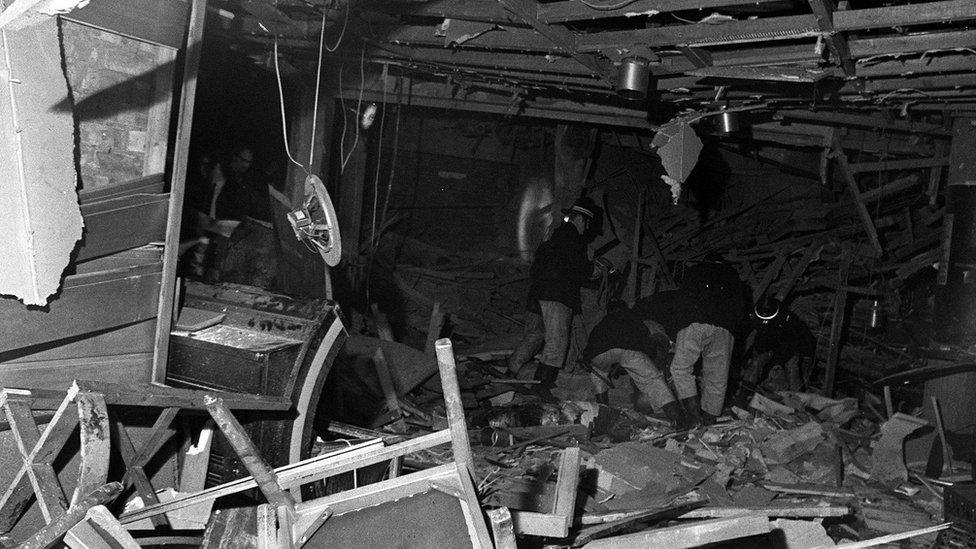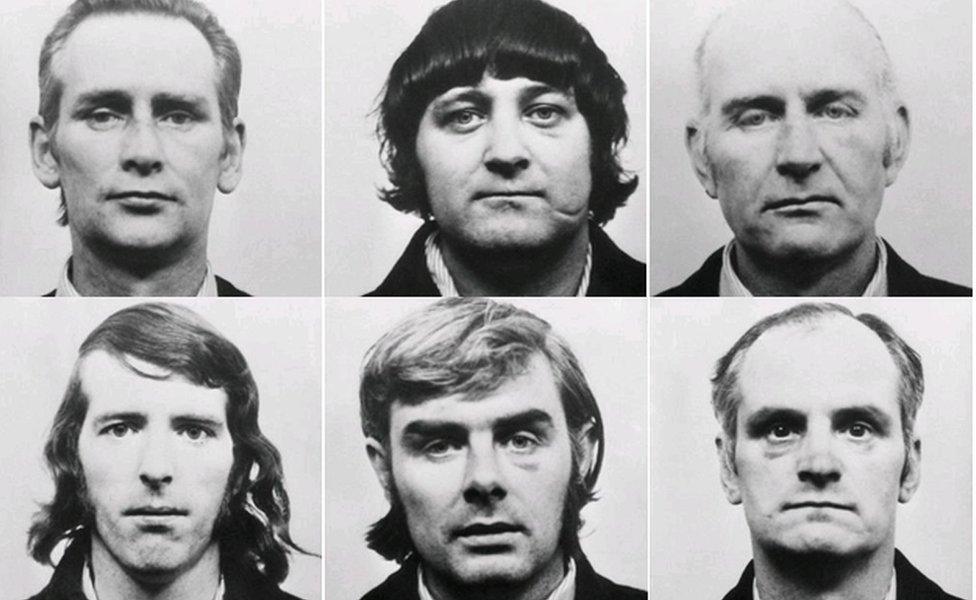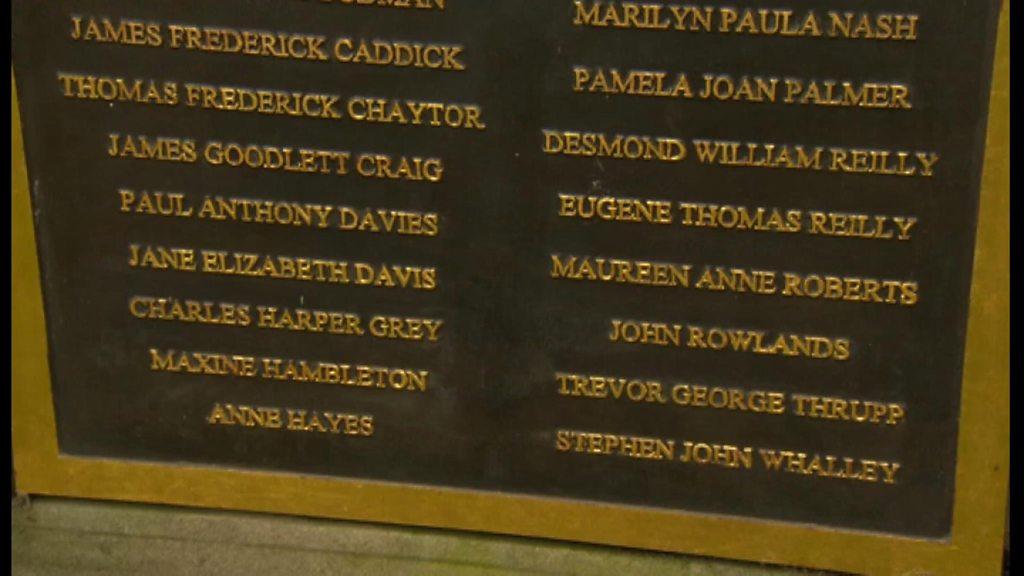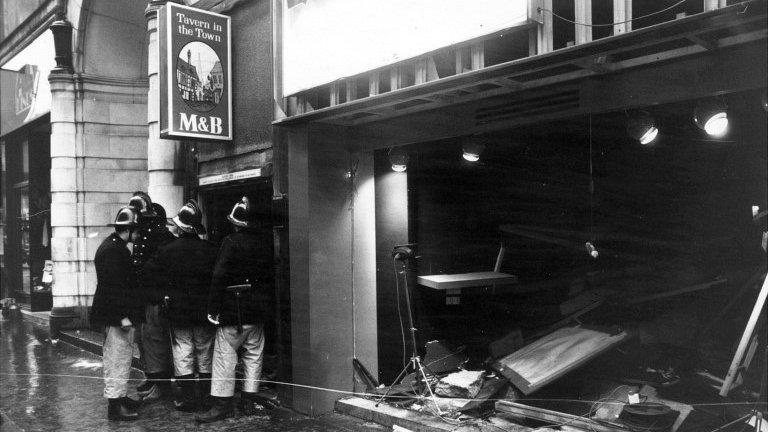Birmingham pub bombings: Bombers will not be jailed - ex-IRA man
- Published
Ex IRA man: Birmingham pub bombers will never be convicted
The Birmingham coroner is to reopen inquests into the victims of the 1974 IRA pub bombings. But one former member of the terror group says the men behind the attacks will never be brought before a court.
The blasts on 21 November 1974 killed 21 people and injured 222. Inquests began days after the attacks but closed a year later after the convictions of six men, who became known as the Birmingham Six. Their convictions were quashed in 1991.
Former IRA member Kieran Conway, who now works as a lawyer in Dublin, said the perpetrators would never hand themselves over to the British authorities.
In an interview with the BBC, he said the attacks - which he said "shocked and appalled" him - had not been sanctioned by the IRA.
He criticised the "absolute immorality" of the bombings, which he claims involved three or four men directly and "a number of more senior men who directed them".
He said he had "no idea" why the pubs were targeted.
"It was an operation that was outside the parameters of what was permitted," he said.
"The bombers themselves wouldn't have known that, but the men who directed it ought to have been punished and weren't."

Two bombs exploded at the Mulberry Bush and the Tavern in the Town pubs in November 1974
Mr Conway, who had recently been appointed as director of intelligence at the time of the attacks, said he met IRA commanders the day after the bombings, when he was asked about his feelings.
"They asked me what I thought, with very straight faces - it was clearly a test of some sort," he said.
"I said I was appalled and personally ashamed to be a member of an organisation that could have done a deed like that."
Attacking civilians in places not known to be associated with the British armed forces was not part of the IRA's policy, Mr Conway said.
During a debrief after the attack, IRA leaders were told the bombers could not find a working phone box to call in a warning. If they had made the call, this could have led to the pubs being evacuated before the blasts.

Paddy Hill, Gerry Hunter, Johnny Walker, Hugh Callaghan, Richard McIlkenny and Billy Power were wrongly convicted of the 1974 Birmingham pub bombings
"That should have been done. It was elementary, and it was a blunder on the part of the bombers - it shows their inexperience and lack of training," said Mr Conway.
He said an IRA court of inquiry was held after the attacks, but the men involved were cleared and no IRA courts-martial followed.
Mr Conway said the surviving bombers were all living in Ireland and their identities were "extremely well-known" and in the public domain.
However, he believes a lack of evidence and Irish extradition laws mean there is "no prospect" of any convictions. He said the campaign by families of the victims for justice was "futile".
"I feel terribly sorry for them," he said.
The Birmingham pub bombings are widely acknowledged to have been orchestrated by the IRA.
Six men were jailed over the killings, but the men, who became known as the "Birmingham Six", were released in 1991 when the Court of Appeal overturned their convictions.
- Published12 May 2016

- Published20 November 2015

- Published7 April 2014
